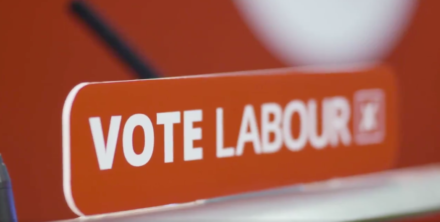
Is Labour’s democracy review broad enough to address the problems we’ve seen emerge during the ongoing antisemitism crisis? The focus of the review is process and grassroots power. But the way it tackles those areas in isolation arguably ignores that a well-functioning party is as much about culture as it is machinery, and that parliamentary democracy limits what members can reasonably expect in terms of influence.
In the run-up to Labour’s landslide victory in 1997, and with the rancorous aftermath of the party’s 1979 election defeat still strong in the mind, proposals to build a Partnership in Power were developed in reference not only to issues about rules and structures but also to party culture itself. The aim was to find a way to set out clearly the responsibilities for both the Labour government and party members, recognising that members are important and valued but Labour governments and their ministers had wider responsibilities to the country as whole.
Partnership in Power, passed by conference in 1997, was not accepted in all quarters, and for some it failed to take these ideas about renewing party culture far enough. But the need to consider how members, supporters and leaders at all levels interact with one another still stands. Labour’s fractious internal dynamics – amplified by social media and thrown into sharp relief by the party’s antisemitism problem – show that urgent work is needed to build a framework for inclusive and productive interaction within the party.
Embedding better understandings of the responsibilities of party members and parliamentarians also remains important. Beefing up members’ rights without clearly addressing the party’s increasingly unpleasant culture risks leaving Labour vulnerable to yet more internal disagreement further down the road. Raising grassroots expectations about their power over policy, whether via conference or digital means, opens the door to disappointment.
Party structures must allow for a Labour government to represent and respond to the majority of voters who are not active in party politics. In power, the leadership will have to make difficult snap decisions in less than ideal circumstances. Without clearer and more transparent guidelines about conduct inside the party, and a better understanding amongst members of the rights and responsibilities of parliamentarians to their constituents, Labour risks a very rough ride if it were to get into government.
Democracy, even within a party, is not just about rules but also culture. The way members exchange their views and draw red lines around what is considered acceptable speaks volumes about what a party stands for and how it relates to the country at large. And party democracy does not exist in isolation from parliament, but in relation to it. As a party that seeks to level the playing field and disperse power, Labour should not be content with the idea that party democracy exists solely for those who pay their subs to consume. Now would be an opportune moment for Labour to return to first principles and consider what kind of culture it needs in order to be a just and effective party ready for government.
Dr Jake Watts is a visiting fellow in the Department of Politics at the University of Sussex.




More from LabourList
Letters to the Editor – week ending 15th February 2026
‘Labour council candidates – it’s tough, but all is not lost’
‘Labour won’t stop the far right by changing leaders — only by proving what the left can deliver’